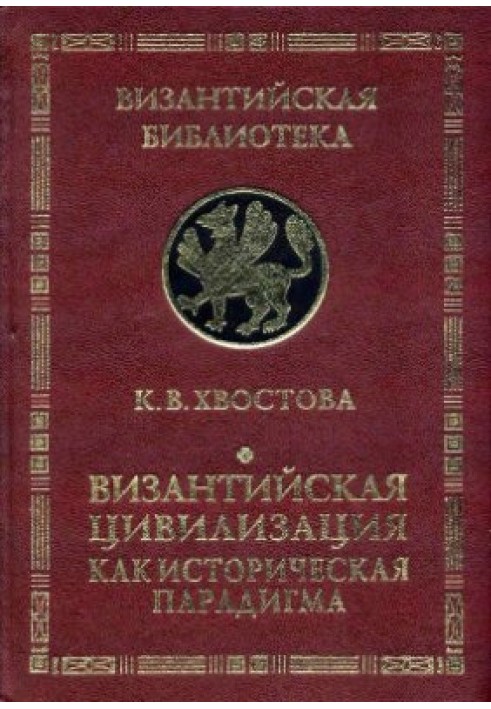Byzantine civilization as a historical paradigm
 Instant download
Instant download
after payment (24/7)
 Wide range of formats
Wide range of formats
(for all gadgets)
 Full book
Full book
(including for Apple and Android)
The author defines civilization as a set of functional and correlational connections between cultural, socio-economic, legal and political factors. The relationship of these factors with event history and the change in the social roles of certain factors reflects the development of civilization over time. The influence of the ideas of Eastern patristics and the theology of Gregory Palamas, related to divine energies and synergy, on the development of society and on the formation of the Byzantines' ideas about the socio-economic policy of the authorities and orientation in society is examined in a new way. For the first time, the law of precedents, which played a huge role in late Byzantium, is analyzed. The problems of full and conditional land ownership regulated by Roman law are considered. Contains characteristics of the Byzantine city - an exponent of the imperial ideology, spiritual and cultural identity of the state. For the first time in literature, the process of rethinking the idea of ancient philosophy of history within the framework of Byzantine theology is analyzed in detail. The book widely uses modern theoretical ideas of hermeneutics, synergetics, modern intellectual globalism and comparative studies, mathematical methods are used, in particular, the coefficient of property stratification of medieval peasants developed by the author. The book is intended historians, philosophers, sociologists and political scientists.
CONTENTS PrefaceProblems and methodsControversial legal issues of Byzantine land ownershipSpecific features of the Byzantine traditionThe sacred character of Byzantine societyThe position of land-dependent peasants-wigsThe role and significance of the law of precedentsByzantine philosophy of historyByzantine cityConclusion
Data sheet
- Name of the Author
- Ксения Хвостова Владимировна
- Language
- Russian












